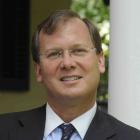The UCLA neuroscientist Matthew Lieberman calls human connection a superpower that makes people smarter, happier, and more productive. It’s also a superpower for organizations, because greater human connection in an organization’s culture boosts employee engagement, tightens strategic alignment, improves the quality of decisions, and increases innovation. Research has also found that people with greater human connections were associated with a 50 percent reduction in the risk of early death.
The opposite of human connection is loneliness and social isolation, which research has found is on par with a risk of early death from smoking 15 cigarettes a day and more lethal than obesity. Loneliness can cause employees to feel exhausted and burned out, decreasing productivity and overall morale. A national research report in May showed nearly half of Americans feel lonely, and two in five Americans feel they are isolated from others. America is experiencing an epidemic of loneliness.
In this webcast, you will learn:
Please register above to view this Webinar.

Michael Lee Stallard (www.MichaelLeeStallard.com) is a thought-leader, author, speaker and leading expert on how human connection in culture affects the health and performance of individuals and organizations. He is the president and cofounder of E Pluribus Partners and the Connection Culture Group. Michael is the primary author of Fired Up or Burned Out: How to Reignite Your Team’s Passion, Creativity, and Productivity and Connection Culture: The Competitive Advantage of Shared Identity, Empathy and Understanding.
Michael has appeared in media outlets worldwide including Entrepreneur, Financial Times, Fast Company, Forbes, Fox Business, Inc., Knowledge@Wharton, Leader to Leader, New York Times and Wall Street Journal. His clients have included Costco, Lockheed Martin, Memorial Sloan Kettering Cancer Center, NASA, Scotiabank, U.S. Department of Treasury, and Qualcomm. Texas Christian University founded the TCU Center for Connection Culture to advance Michael and his colleagues' ideas at TCU and in higher education.